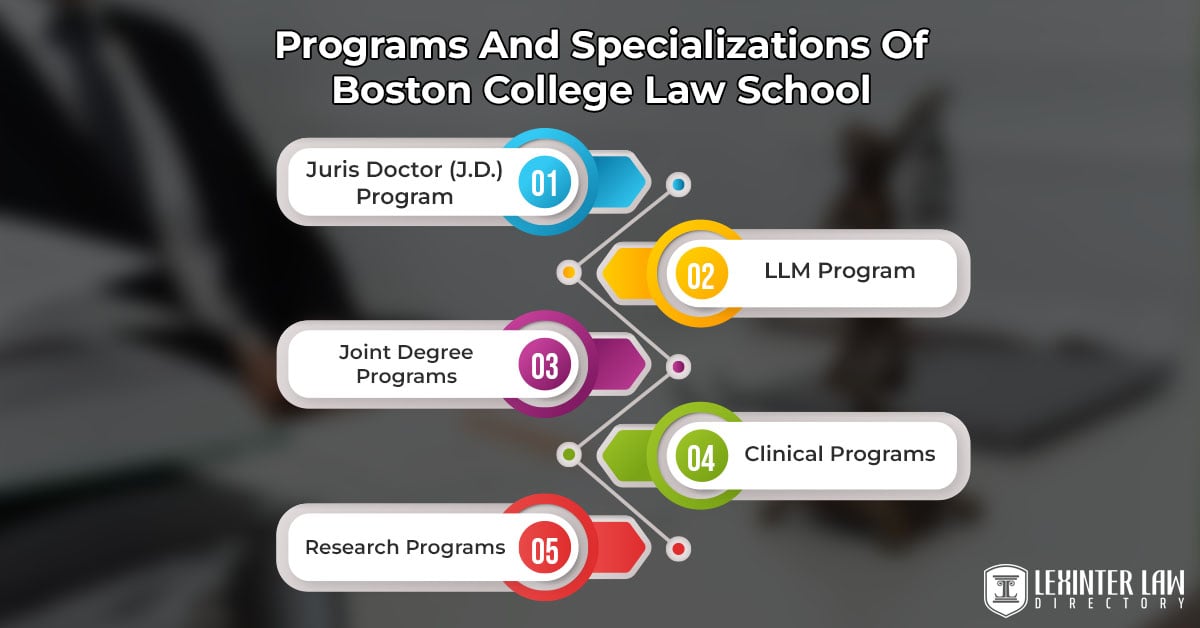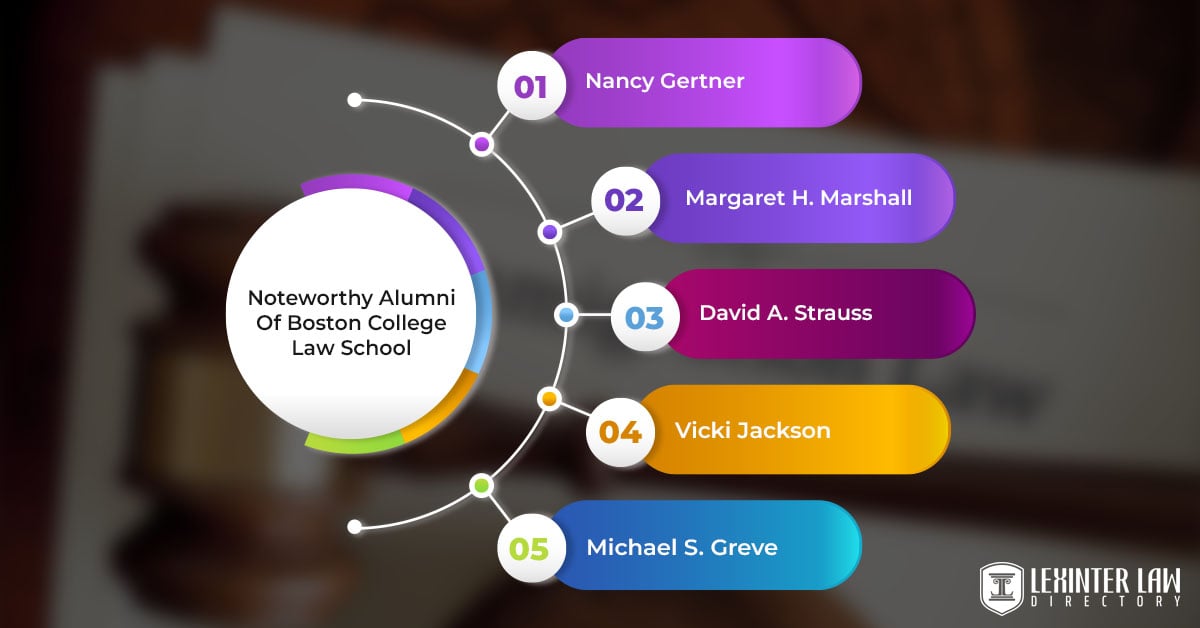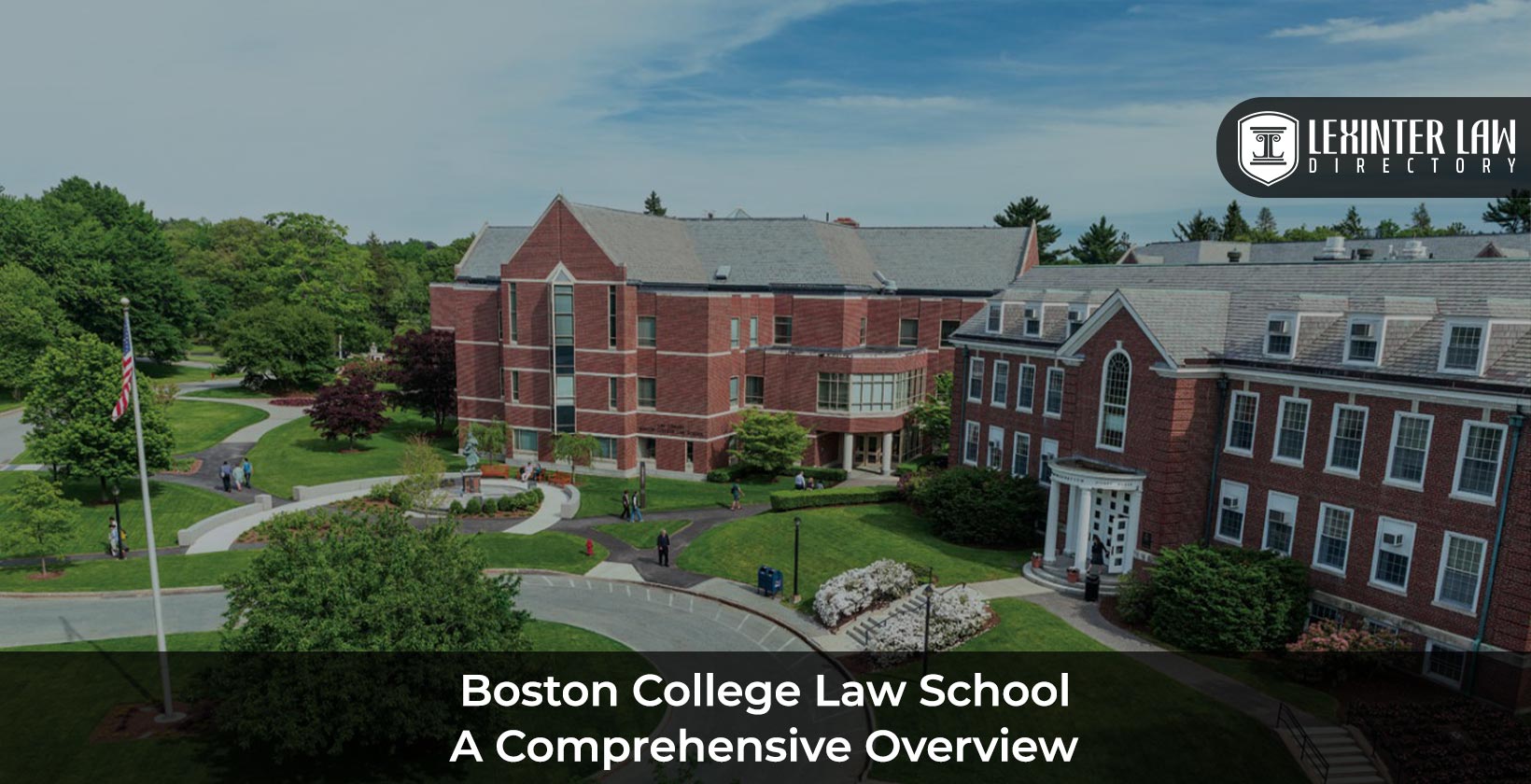Boston College Law School: A Comprehensive Overview
At Boston College Law School (BCLS), the answer lies in its powerful blend of tradition, innovation, and purpose.
Boston College Law School is one of the top law schools in Massachusetts. But it’s more than just a ranking—it’s a place where future leaders are shaped, where law meets compassion, and where students are inspired to drive real-world change.
Just outside Boston in the city of Newton, BCLS offers more than lectures and textbooks—it offers opportunity, community, and a chance to be part of something bigger. Ready to explore why this institution stands out? Let’s dive into the story behind BCLS and what makes it a cornerstone of legal education.
Table of Contents
Location And Address
Boston College Law School is located in Newton, Massachusetts, just a short distance from downtown Boston. Its serene suburban setting offers students a quiet, focused environment while maintaining close connections to the city’s legal and academic opportunities.
Where Do You Find BCLS?
Boston College Law School sits in Newton, a peaceful suburban city just outside bustling Boston. This prime location offers students the best of both worlds—a calm academic atmosphere and quick access to Boston’s courts, law firms, and professional networks, all within a 20-minute drive or public transit ride.
Getting To Boston College Law School
Reaching Boston College Law School is straightforward and student-friendly. Located at 885 Centre Street, Newton, MA 02459, the law school is just 1.5 miles from the main Chestnut Hill Campus. You can take the Green Line’s B branch to the Boston College stop, followed by a short walk, or hop on the university’s shuttle bus, which drops you right at the law school’s entrance.
Historical Background
Boston College Law School has built a rich legacy since its founding in 1929. It blends tradition with innovation, shaping generations of legal professionals committed to justice, public service, and academic excellence in Massachusetts and beyond.
Brief History Of BCLS And Its Founding
Boston College Law School was established in 1929 by John B. Creeden, former president of Georgetown University. Dennis A. Dooley, a Harvard-trained lawyer, became its first dean. Their vision was to establish a Catholic law school founded on academic integrity, professional excellence, and a commitment to serving others.
Milestones And Notable Achievements Over The Years
BCLS has achieved national recognition through academic innovation, impactful centers, and legal scholarship. From bar accreditation in the 1930s to public interest initiatives and groundbreaking legal clinics, the school’s milestones reflect its evolving influence in law and justice.
Early Years (1929)
BCLS began with 54 students during the Great Depression. Within just three years, it earned accreditation from the American Bar Association. Despite economic challenges, the school quickly established a reputation for academic excellence and a solid foundation in legal ethics.
Mid-20th Century
The law school experienced steady growth in student enrollment and academic offerings. In 1954, BCLS moved to its permanent home in Newton. This move enabled expansion and solidified its presence as a major legal education institution in the Boston area.
Late 20th Century
By the late 1900s, BCLS graduates held prominent positions nationwide. In 1998, the school launched the Rappaport Center for Law and Public Policy, expanding its public service reach and strengthening its role in shaping policy and government leadership.
21st Century
The law school gained ground in national rankings and launched forward-thinking centers. Notable among them is the 2021 founding of the Center for Racial Justice, reinforcing BCLS’s commitment to equity, diversity, and addressing systemic issues through legal education.
Academic Excellence
Boston College Law School is recognized for its rigorous academic programs, expert faculty, and practical training. Its curriculum blends legal theory with hands-on experience, preparing students to thrive in both traditional and evolving areas of law.
Programs And Specializations

BCLS offers a range of specialized programs tailored to meet the demands of today’s legal landscape, including traditional degree programs, interdisciplinary options, and experiential learning opportunities through clinics and research centers.
Juris Doctor (J.D.) Program
The J.D. program at BCLS is a three-year, full-time course designed to equip students with a strong legal foundation. It emphasizes critical thinking, ethical practice, and practical skills through clinics, externships, and legal writing.
LLM Program
The Master of Laws (LLM) program is a one-year course for international or U.S.-trained lawyers. It enables specialization in areas such as environmental law, business law, or human rights, thereby enhancing global legal perspectives.
Joint Degree Programs
BCLS offers joint degrees, such as J.D./MBA and J.D./MSW, that combine law with business, social work, and other fields. These programs allow students to diversify their expertise and expand career opportunities in interdisciplinary fields.
Clinical Programs
Clinical programs give BCLS students hands-on legal experience. From environmental and immigration law to juvenile rights, students work on real cases under supervision, serving communities while sharpening legal skills.
Research Programs
Students at BCLS can participate in advanced research through centers like the Center for Racial Justice or the Legal History Roundtable. These initiatives deepen understanding of key legal issues and promote scholarly inquiry.
Rankings And Reputation
Boston College Law School (BC Law) has ascended to No. 25 in the 2025 U.S. News & World Report rankings, marking its highest position since 2004. This rise reflects BC Law’s commitment to academic excellence and professional success.
Current Rankings Of Boston College Law School
In the 2025 U.S. News & World Report rankings, BC Law ranked 25th nationally. Specialty rankings include 12th in Tax Law, 18th for graduates at Big Law firms, 29th in International Law, 31st in Intellectual Property Law, and 34th in Health Care Law.
Factors Contributing To BCLS’s Reputation And Recognition
BC Law’s reputation is bolstered by its high bar passage rates, with 93.82% of first-time takers passing in 2024. The school also boasts a 97.1% employment rate for graduates within ten months. Additionally, BC Law is ranked #9 for Best Quality of Life and #10 for Best Classroom Experience by Princeton Review.
Admissions
Boston College Law School maintains a highly selective admissions process, emphasizing both academic excellence and a commitment to social justice. The school seeks applicants who demonstrate strong academic credentials and a dedication to ethical legal practice.
Admissions Process At Boston College Law School
BC Law employs a holistic review process, considering various aspects of each applicant’s profile:
- GPA: Academic performance is a key factor.
- LSAT Score: Standardized test scores are evaluated.
- Recommendations: Two letters, preferably from professors or professional supervisors, are required.
- Personal Statement: Applicants should articulate their motivations and suitability for legal studies.
- Experience: Work, extracurricular activities, and volunteer work are assessed for leadership and commitment.
This comprehensive approach ensures a diverse and dynamic student body.
Acceptance Rate And Stats
Boston College Law School is highly competitive, attracting top-tier applicants nationwide. With a low acceptance rate and strong academic indicators, BCLS stands out as a premier destination for aspiring legal professionals who value excellence and impact.
Acceptance Rate
BCLS admits approximately 13.27% of applicants, making it one of the more selective law schools in the country. This competitive rate reflects its strong national reputation and rigorous academic standards.
Average GPA
Students admitted to Boston College Law School typically have an average undergraduate GPA of 3.80, indicating academic consistency and strong intellectual potential.
Average LSAT Score
The median LSAT score for incoming BCLS students is 167, placing them among the top-performing test-takers in the nation.
School Prestige
Ranked #25 nationally by U.S. News & World Report (2025), BCLS is recognized for its academic rigor, esteemed faculty, and strong placement in elite law firms and public interest roles.
First-Gen Students
Approximately 20% of the BCLS student body are first-generation college students, reflecting the school’s ongoing commitment to accessibility and inclusion.
Diverse Student Body
Boston College Law School values representation. Approximately 30% of enrolled students identify as students of color, fostering a vibrant and inclusive learning environment that is grounded in diverse perspectives.
Noteworthy Alumni

Boston College Law School has produced influential leaders across the legal spectrum. From federal judges to constitutional scholars, BCLS alumni have shaped courtrooms, academia, and public policy at the highest levels of impact.
Nancy Gertner
A former U.S. District Court judge, Nancy Gertner is renowned for her advocacy on civil liberties and women’s rights. After her distinguished judicial career, she joined Harvard Law School as a faculty member and remains an outspoken voice on legal reform.
Margaret H. Marshall
As Chief Justice of the Massachusetts Supreme Judicial Court, Margaret H. Marshall authored the landmark decision legalizing same-sex marriage. She also served as President of the American Bar Association, influencing national legal policy and professional standards.
David A. Strauss
A respected constitutional law scholar, David A. Strauss is a professor at the University of Chicago Law School. He has written influential books and clerked for U.S. Supreme Court Justice William J. Brennan, shaping thought leadership in constitutional interpretation.
Vicki Jackson
Vicki Jackson is a leading authority in constitutional law and federal courts. A former clerk to Justice Thurgood Marshall, she now teaches at Harvard Law School and has written extensively on government structure and constitutional accountability.
Michael S. Greve
Michael S. Greve is a renowned legal scholar recognized for his contributions to constitutional and administrative law. He has authored several books, co-founded influential legal organizations, and served as a law professor at institutions including George Mason University.
Campus Facilities
Boston College Law School offers a scenic, purpose-built campus that strikes a balance between academic tradition and modern learning. Students benefit from beautiful spaces, cutting-edge resources, and a thoughtfully designed environment tailored for legal study and real-world preparation.
Description Of BCLS Campus
The Boston College Law School (BCLS) campus blends timeless architecture with academic serenity. Located in Newton, Massachusetts, its red-brick buildings, lush greenery, and peaceful paths create an ideal learning atmosphere. Students enjoy standout features like a nationally recognized law library and immersive moot courtrooms that simulate the real-life legal world.
Technology And Resources
BCLS provides top-tier technology to support modern legal education. Classrooms are equipped with smart audio-visual systems, and students access legal databases, research platforms, and a fully equipped computer lab. These tools empower students to excel in both classroom discussions and scholarly research, keeping them connected to the evolving legal landscape.
Student Life
Life at Boston College Law School goes beyond the classroom. Students engage in a vibrant community through clubs, service opportunities, and social events—building connections, leadership skills, and a sense of purpose along the way.
Extracurricular Activities, Student Organizations, And Clubs
At Boston College Law School (BCLS), student life isn’t just about studying. Students join many clubs and groups that match their interests. There’s a club for almost everything! Whether you love debating, singing, dancing, or helping the community, there’s a group for you. These clubs are great for making friends and taking a break from classes.
Community Engagement Initiatives And Pro Bono Opportunities
BCLS students care about their community. This school of law offers many chances for students to help others. Some students give free legal advice to people who can’t afford a lawyer. Others work on projects to make the town a better place. It’s a win-win: students get to practice their skills and people in the community get the help they need.
Career Opportunities
Boston College Law School prepares students for meaningful, high-impact careers. With strong employer ties and practical training, graduates launch into roles at top firms, public institutions, and advocacy groups shortly after completing their degrees.
Post-Graduation Prospects And Employment Statistics
BCLS graduates enjoy excellent career outcomes. Within ten months of graduation, over 97% secure employment. Many land prestigious positions in leading law firms, government agencies, or judicial clerkships. The school’s career services team provides personalized guidance, helping students navigate job searches, interviews, and post-graduate pathways with confidence and support.
Partnerships With Law Firms, Government Agencies, And Organizations
Boston College Law School maintains strong partnerships with prominent law firms, courts, nonprofits, and government entities. These relationships open doors to internships, clerkships, and job offers. Through mentorships, recruiting events, and networking opportunities, students gain valuable exposure to the legal field while building lasting professional connections that launch their careers in law.
Loved the read? Read another blog on Exploring New York Law School: Guide To Your Legal Education. Journey
Frequently Asked Questions About Boston College Law School
1. Is Boston College A Good Law School?
Yes, Boston College Law School is highly regarded for its academic excellence, nationally ranked programs, and commitment to public service. With a top 25 national ranking, exceptional faculty, and strong job placement rates, BCLS offers students a well-rounded, high-impact legal education in a supportive and professional environment.
2. What Is The Minimum GPA For Boston College Law School?
Boston College Law School does not have a strict minimum GPA requirement. However, the median GPA for admitted students is around 3.80. Applicants with GPAs between 3.64 and 3.89 are typically competitive, though the admissions process considers a range of academic and personal factors.
3. Is It Hard To Get Into Boston College Law School?
Yes, gaining admission to Boston College Law School is challenging due to its competitive selection process. For the 2024–2025 academic year, the acceptance rate was approximately 13.27%, with 813 applicants admitted out of 6,128. This low acceptance rate reflects the school’s high academic standards and selective admissions criteria.
Conclusion
Boston College Law School is more than a top-ranked institution—it’s one of the best law schools in the country for those driven by purpose and impact. With exceptional academics, transformative experiences, and a powerful alumni network, BCLS prepares students to lead, serve, and innovate.
From courtroom advocacy to public interest work, this is where futures are built. If you’re ready to rise to the challenge, your journey to becoming a changemaker begins at Boston College Law School.

